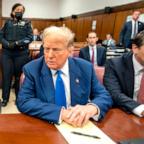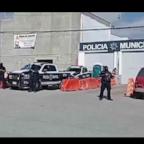IRS unlocks UBS vault hiding Americans evading taxes
— -- One is a U.S. business owner who hid a tax-evasion scheme "well into the seven figures."
Another is an elderly American who kept money in an offshore account over fear for the security of the U.S. banking system.
And then there are the children of parents who survived the Holocaust and established a foreign trust account on their behalf.
They're also among a recent rush of American UBS customers who contacted the IRS about their accounts, hoping to gain leniency for their failure to pay years of federal taxes on the secret holdings.
"The rush is on," says Robert McKenzie, a Chicago attorney who's representing the three UBS account holders plus 14 others seeking similar tax settlements regarding accounts at the Swiss bank.
The IRS' message is clear: "You better come in now before your name comes out," said McKenzie, who declined to identify his clients but agreed to discuss general outlines of their cases.
The developments are part of a historic legal struggle that has cracked Switzerland's renowned reputation for banking secrecy and cast a spotlight on what a 2008 Senate hearing identified as $100 billion in annual tax evasion by American owners of foreign accounts.
U.S. authorities filed the civil lawsuit in Miami, one day after reaching a deferred-prosecution deal in which UBS agreed to a $780 million settlement of criminal charges it helped American customers evade federal taxes. The agreement required the bank to turn over identities of some of those clients.
Thursday's civil lawsuit asked a federal court to enforce so-called John Doe summonses served on UBS last year for the names of the undeclared account owners, along with details of their holdings.
The court demand also cited roughly 52,000 suspect accounts, up from 19,000 federal authorities alleged last year.
Federal authorities upped the legal ante after UBS' criminal case acknowledgement of a 2000-2008 scheme in which its bankers used encrypted laptop computers and counter-surveillance tactics during trips to the U.S. in which they helped American clients evade taxes.




